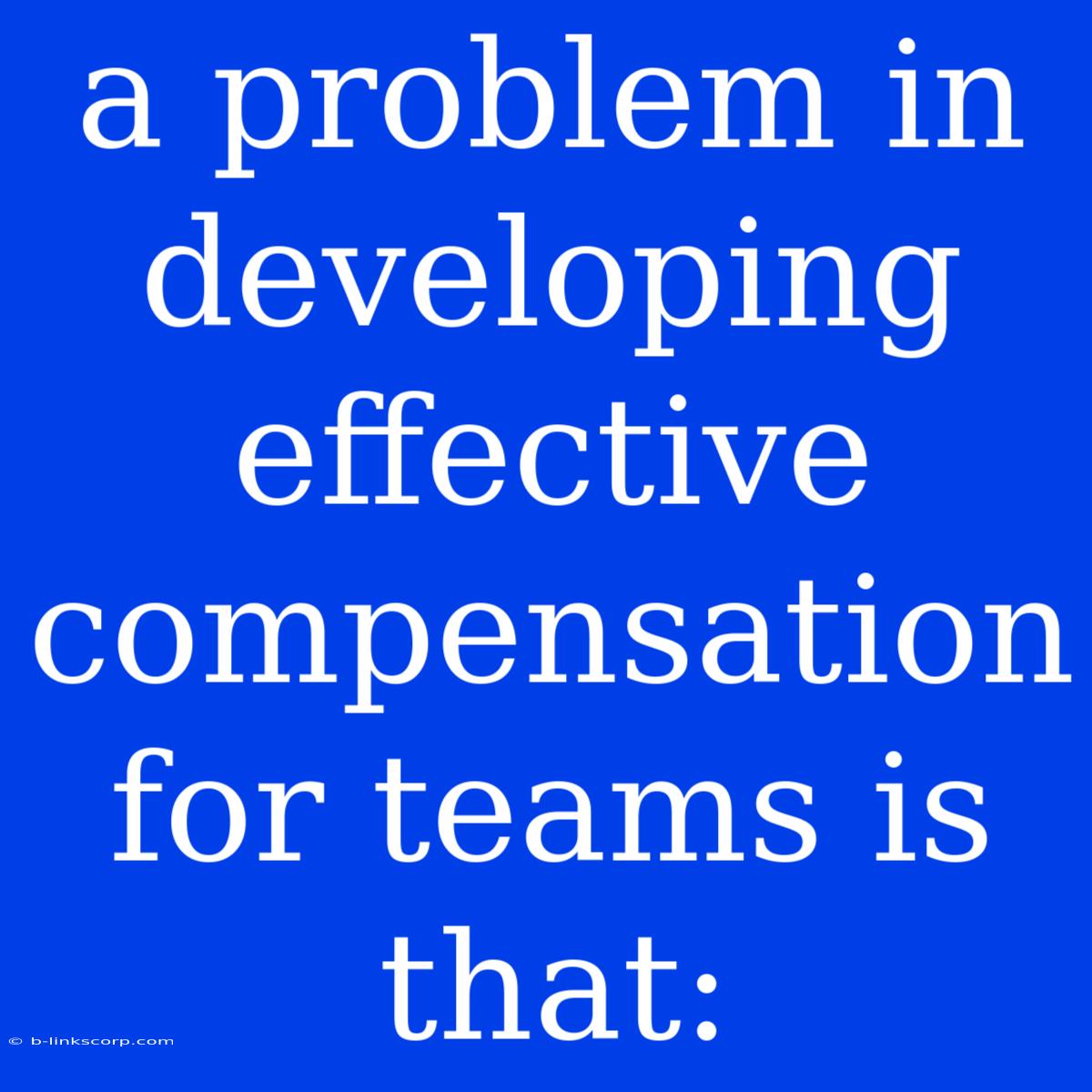The Perils of Team Compensation: Why One-Size-Fits-All Fails
Developing an effective compensation plan for teams is a critical task for any organization. However, many companies struggle to create a system that motivates, rewards, and retains talent. One of the biggest challenges is the misconception that a one-size-fits-all approach will work for diverse teams.
The Pitfalls of Standardized Compensation
Here's why a standardized approach often fails:
- Individual Goals vs. Team Goals: Compensation plans often focus on individual performance metrics, neglecting the importance of collective achievements. This can lead to competition within the team and undermine collaboration.
- Varying Skill Sets and Contributions: Teams are composed of individuals with unique skill sets and levels of experience. A standardized system fails to acknowledge these differences, potentially leading to dissatisfaction among high-performing team members.
- Lack of Flexibility: Standardized plans lack the flexibility to adapt to changing team dynamics, new projects, or individual growth trajectories.
The Importance of Tailored Compensation
To address these challenges, organizations need to adopt a flexible and tailored approach to team compensation. This involves:
- Defining Clear Team Objectives: Establish specific, measurable, achievable, relevant, and time-bound (SMART) objectives for each team. This sets the foundation for a collaborative and goal-oriented environment.
- Identifying Key Performance Indicators (KPIs): Define KPIs that measure both individual and team contributions towards achieving team goals. This ensures that compensation reflects the value generated by each team member.
- Utilizing a Mix of Compensation Components: Beyond base salaries, explore different compensation components that address individual and team contributions. These might include performance bonuses, profit sharing, equity grants, or even creative benefits tailored to specific team needs.
- Promoting Transparency and Communication: Openly communicate the compensation structure to all team members. Transparency builds trust and reduces the risk of misunderstandings or resentment.
- Regular Review and Adjustments: Periodically review and adjust compensation plans based on team performance, individual growth, and market trends. This ensures that the system remains relevant and motivating.
Beyond Compensation: Building a Strong Team Culture
While compensation is crucial, a holistic approach goes beyond financial rewards. Fostering a positive team culture through:
- Open communication and feedback: Create a space where team members feel comfortable sharing their ideas and concerns.
- Recognizing and celebrating achievements: Acknowledge individual and team contributions, fostering a sense of accomplishment and belonging.
- Promoting professional development: Invest in training and development opportunities that help team members enhance their skills and advance their careers.
By implementing a flexible, tailored compensation system and cultivating a strong team culture, organizations can create a rewarding and motivating environment that attracts, retains, and empowers top talent.

